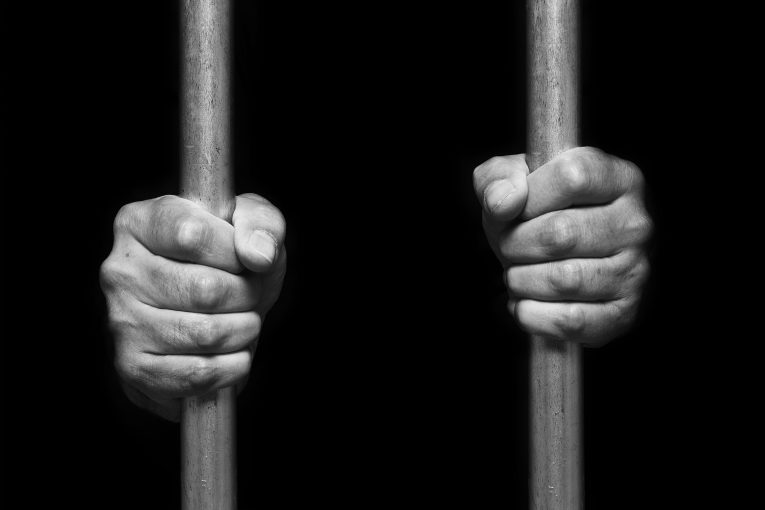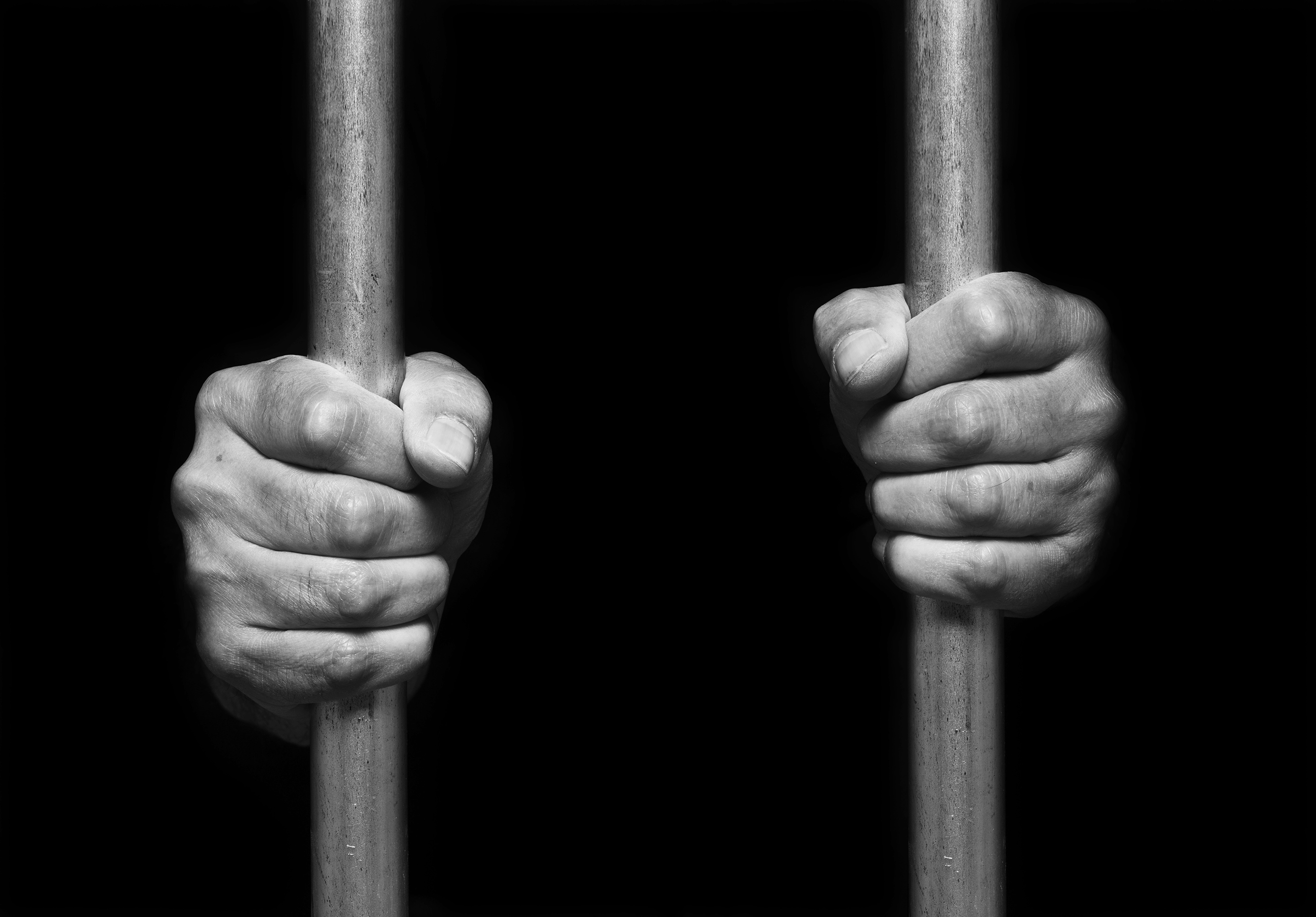

Groups argue “Death by Incarceration” is torture and violates ban on racial discrimination
by David M. Greenwald
Executive Editor
New York, NY – Since the 1970s, the reliance on sentences of death by incarceration (DBI) or otherwise known as Life Without Parole (LWOP) have “increased exponentially since the 1970s and has played a major role in driving mass incarceration,” according to a complaint filed on Thursday with the United Nations.
A national coalition of advocacy and legal groups Thursday submitted a complaint to the United Nations saying the United States is committing torture and other gross human rights violations by condemning people to “Death by Incarceration.”
The coalition is urging the U.N. to call for the abolition of life imprisonment, which, like mass incarceration, occurs in the U.S. more often than in any other country in the  world.
world.
“In 2020, 15 percent of the total prison population, or 203,865 people, were serving life or virtual life sentences,” the complaint noted. “This increase in the DBI-sentenced population is further compounded by a decrease in clemency and the uncertainty of parole.”
The complaint added, “The exponential rise in DBI sentences results in an increasing number of people—and a disproportionate number of racial and ethnic minorities—who are condemned to conditions inside of prison that lead to a premature death.”
Emerging from a growing movement led by incarcerated people and their families, the complaint includes testimony from some of the more than 200,000 people imprisoned in the United States under DBI sentences, which include life without parole (LWOP), life with parole, and “virtual life” sentences: sentences that exceed life expectancy.
It comes just days before a hearing in Commonwealth of Pennsylvania v. Derek Lee, a criminal appeal in the Pennsylvania Superior Court challenging LWOP sentences for felony murder, the term for when a death occurs during the commission of a felony even if the person sentenced either did not kill or did not intend to kill anyone.
The complaint also comes days before a rally organized by the Coalition to Abolish Death by Incarceration in Harrisburg, Pennsylvania, demanding that legislators support bills that would allow people serving DBI sentences the opportunity to come home from prison.
“DBI is literally a term of confinement that condemns men, women, and children to die in prison,” said Robert Labar, Vernon Robinson, Charles Bassett, and Terrell Carter in a letter included in the complaint. They are members of the Right 2 Redemption Committee, formed by people sentenced to LWOP in Pennsylvania. “In doing this, the state is making the argument that it has the moral right to strip a human being of all hope and dignity until they die.”
Terrell Carter just came home from prison after 30 years of incarceration. He was sentenced to life without parole, but had his sentence commuted.
“While I was in prison, I was part of a committee called Right the Redemption,” he told the Vanguard in a recent Zoom interview. Their purpose was to “come up with a different way of looking at condemnation of life without parole or death by incarceration.”
Carter described his experience with life without parole as “feeling I was always walking on the edge of an abyss.”
But he said, “I always believed I would eventually go home. I couldn’t see it all the time, and that belief was under constant assault because there was this other thought in the back that I had to fight every conscious moment that I was in prison—there was this thought that said to me, Terrell, what are you fighting for—you’re going to die in prison.”
He explained it as a thirty-year struggle “to hold on and cling to the hope versus giving up and falling into that abyss.”
For him, the key was, “People can transform. People can become better people. People aren’t the worst expression of themselves for the remainder of their lives. There exist possibilities in humans and there exists possibilities for human beings to become better.”
Caroline Hansen is a RAPP Campaign Community Leader whose husband is serving an LWOP sentence in New York State prison for Capital Murder.
She described his tough upbringing, growing up in a trailer park, getting into drugs and selling drugs, getting kicked out of his home and going down a path that led to the horrible crime he committed.
“My husband takes full responsibility for his victim,” Hansen explained. He faced the death penalty at the time, because he was implicated in an attack on a second cab driver. He admitted to shooting a guy in the head, but denied being involved in beating a cab driver. “They took the death penalty off the table, my husband was then facing life without parole.”
By taking away the death penalty, ironically, “all the lawyers that had been there, there with him throughout, everything was taken away because the death penalty was off the table.”
He pled to LWOP.
“I met my husband while he was incarcerated, so I wasn’t there throughout the beginning of his incarceration,” she said. At the same time, “the day they charged him (with) the death penalty was the day he got his GED in county jail.”
“So really from day one that he was arrested, he stated bettering himself,” she said. “He’s obtained his associate’s degree. He just graduated with his bachelor’s and he is waiting to get into the master’s program.”
At the same time, “he always has been so remorseful for what his part was in the crime.”
She described it as “the most horrible act you can do to another human, it was five minutes of his life and it changed the victim’s family, it changed his family, it changed his girlfriend’s family. It was horrible, but it was five minutes.”
“I believe that an individual needs to be held accountable for the crime they committed and they need to be able to take responsibility for what they’ve done. But now my husband’s been incarcerated for 26 years and he’s not the same person he was in 1996,” she explained.
According to the release, the complaint aims to draw international attention to the United States’ inhumane life sentencing practices. Responses by the U.N. to previous complaints have influenced U.S. policy.
In 2011, for example, the U.N. Special Rapporteur on Torture called for a prohibition on solitary confinement beyond 15 days. Since then, lawmakers in various states have pushed for limits on solitary confinement, including a 15-day cap passed in New York State.
“Death by Incarceration is a structural and ideological pillar of the racist criminal punishment system in this country,” said Bret Grote, legal director of the Abolitionist Law Center. “With today’s submission, we are sending a defiant and determined message that Death by Incarceration is a crime of the state and there is a growing movement that intends to bring about its abolition.”
“Death by Incarceration violates a range of interrelated human rights, the complaint argues. To deny people hope of life after prison is to inflict suffering so cruel it amounts to torture. DBI sentences also violate the prohibition on racial discrimination, as more than two-thirds of those serving them in the United States are people of color. And while in 2020 only 12.4 percent of the US population was Black, 46 percent of all of those serving life sentences nationwide were Black,” the group said.
As the U.N. Committee against the Elimination of all Forms of Discrimination acknowledged in its review of U.S. compliance this summer, people “belonging to racial and ethnic minorities, including women, are overrepresented in the criminal justice system… and subjected to harsher sentences, including life imprisonment without parole….”
The U.N. has called for abolition of other policies, such as the death penalty and juvenile LWOP, that disproportionately subject racial and ethnic minorities to the worst consequences of the criminal legal system.
Because DBI sentences cause premature death, they also violate the right to life, and because they do not serve any legitimate purpose, they are an illegally arbitrary deprivation of liberty, the complaint argues.
“Life without the possibility of parole is a death sentence,” said Joanne Scheer of the DROP LWOP Coalition. “It is a concrete box with death as the only exit. California currently has over 5,100 individuals surviving this death sentence. Every year, 135 human beings are added to this tortured population, most of whom are youth under the age of 25. Add the tens of thousands of family members and loved ones who are enduring without hope alongside them and entire communities are devastated.”
The United States’ reliance on DBI sentences is a key driver of mass incarceration. The number of DBI sentences began to increase sharply when, after the Supreme Court struck down the death penalty in 1972, states enacted or stiffened DBI-sentence laws. The trend continued even after the Supreme Court reinstated the death penalty in 1976, and intensified in the 1980s with the dawn of the “tough on crime” era. Since 1984, the growth of the life-sentenced population has outpaced the growth of the overall prison population.
Caroline Hansen told the Vanguard, “Sometimes he just loses the will to get up and get dressed and brush his teeth, because he knows that he may never come home.”
She described that “we have all of these programs that he’s completed and, you know, he’s completed every program that he doesn’t have to complete, but he utilized all of those programs to better himself. Not because he had to, but because he wants to,”
She said, “the nature of his crime will never change, we can’t change what happened, but we can change who we are now and, and what we do going forward.”
Hansen concluded, “These living death sentences are torture. There’s no other way to describe it. Some days my husband loses the will to live, knowing that the state has already decided on the circumstances of his death, even if the date is uncertain.”

